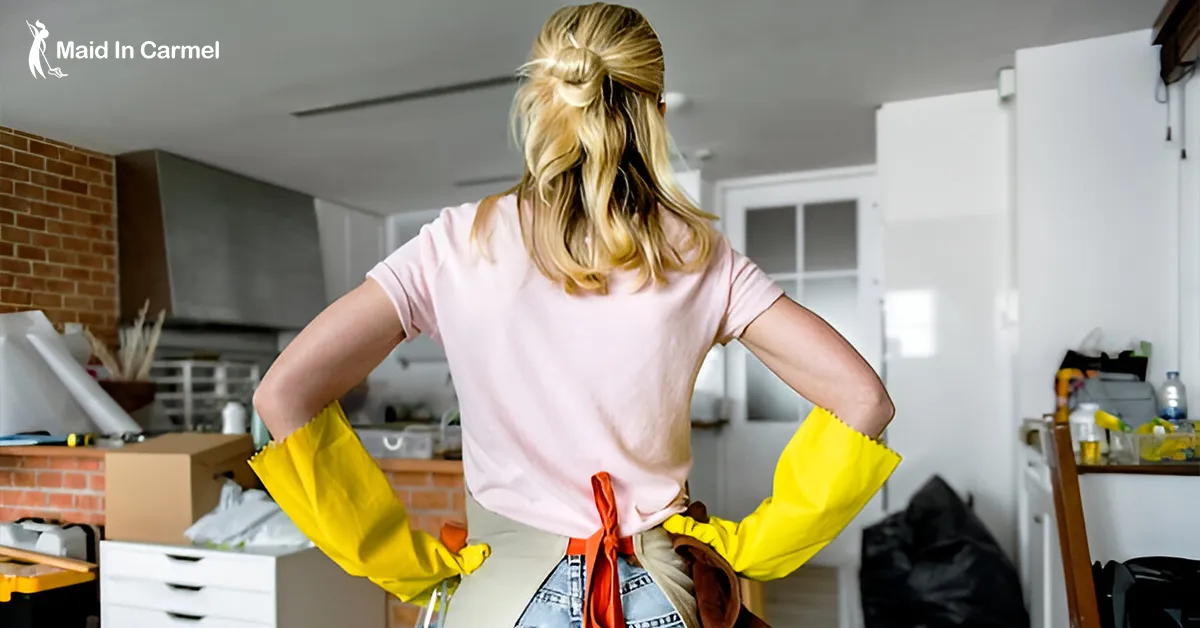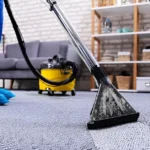Tenants in NYC have to offer rentals that are neat and clean for tenants who are moving in; however, they don’t need to conduct a thorough cleaning routine between tenants. The standard legal requirement will be broom clean, meaning that the property should be clean of debris, trash, as well as health risks. However, the apartment does not need to be clean or newly painted, unless stated within the terms of lease.
The market for rental properties in New York is fast-paced and highly competitive and first impressions are crucial for landlords as well as tenants. Cleaning is an essential factor in attracting renters as well as keeping property values. Although deep cleaning is frequently talked about, there are many who are unclear regarding what lawful requirements are.
This article explains NYC’s standards for cleaning as well as who’s accountable for what, and the ways commercial and residential services can aid in easing the procedure.
NYC Housing Maintenance Code and Habitability
NYC Law requires that landlords ensure that rental apartments are sanitary, safe, and suitable for living. This is called the Housing Maintenance Code (HMC), which obliges landlords to ensure an ongoing level of cleanliness and safety within their premises, making sure that they are safe from vermin, water leaks, and other hazards. This lawful standard is referred to as the implied guarantee of habitability and applies to all rentals of residential homes within the city.
What Does Broom Clean Mean?
The most popular standard to be used for the apartment’s turnover within NYC can be described as broom clean. This implies that the apartment is to be cleaned of trash, personal items, and other obvious trash. The apartment doesn’t need to be sparkling or professionally maintained. However, it must not be soiled or a danger to the environment. A broom clean does not need a thorough cleaning or mopping. Painting is not required if the apartment hasn’t been painted in more than 3 years.
Landlord vs. Tenant Cleaning Responsibilities
A clear understanding of responsibilities can prevent disputes between tenants and landlords. Both parties need to adhere to the lease’s terms and regulations for the smoothest change. In the following section, we will break down important obligations that each side must meet.
Tenant’s Obligations Before Moving Out
Tenants generally have to depart the property as they found it, except the normal wear and tear. A majority of rental agreements have the requirement that tenants tidy up before leaving. If the tenant is not able to keep clean, the landlord can subtract cleaning fees from their security deposit.
Landlord’s Obligations Before New Tenant Moves In
If the tenant is found to leave their apartment filthy, the landlord is responsible for ensuring that the apartment is kept clean and livable for the new tenant. The landlord must take care of any problems that could impact health or security, like insects, mold, or even trash.
Although landlords aren’t required to conduct a thorough cleaning, they should ensure that their property is in compliance with the broom clean standard and is safe to be occupied.
Security Deposit and Cleaning Deductions
In the event that cleaning is required above the usual wear and tear, the landlord can make use of a portion or all of their security deposits in order to cover the costs. But the deductions have to be justified and documented. Rental agreements usually specify the type of cleaning requirements and the way disputes regarding deposits should be dealt with.
Deep Cleaning: Is It Required?
The deep cleaning process goes far beyond sweeping and dusting. This includes cleaning bathrooms and kitchens, sweeping the inside of appliances, washing windows, and occasionally, using expert carpet cleaners. The deep cleaning process isn’t an official requirement for tenants in NYC however, it’s recommended, particularly if the previous tenant has had the property in a poor state.
When Is Deep Cleaning Necessary?
Cleaning up the floor may be required when:
- The former tenant was a smoker or produced smells.
- There may be stains, dirt, or even pest problems.
- The rental agreement specifies the need for a stricter cleaning requirement.
A lot of landlords invest in a thorough cleaning program to attract good tenants as well as protect the value of their property, even though the law requires only a broom clean.
Typical Cleaning Expectations in NYC Rentals
In the majority of NYC apartments, prospective tenants are expected to live in a space which is clean of filth and other dirt but it’s not always perfect. Certain landlords have a higher level of cleanliness, however that isn’t a guarantee in laws. If an apartment isn’t accessible due to hygiene issues, tenants can ask the landlord take care of the issue prior to moving into the property.
Role of Professional Services in Rental Turnovers
Professionally trained cleaning can help homeowners meet or surpass what is known as the broom clean standard. Residential cleaning services provide deep-cleaning, moving-in/move out cleaning and specific treatments for carpets or appliances. Commercial services are offered for large buildings and multi-unit turnovers. They ensure that each unit is in line with requirements for safety and health.
Benefits for Landlords and Tenants
- Faster turnover between tenants
- There is less chance of a dispute over the cleanliness of your home.
- A better first impression for prospective tenants
- Property maintenance improvements and increased worth
Property owners who employ the most effective services for cleaning their homes in NYC typically have a better chance of attracting and maintaining tenants. Other cities, such as residential cleaning services in Indianapolis, provide similar advantages to property owners and landlords.
Best Practices for Landlords
A structured approach to guiding principles helps ensure smooth transitions and reduces conflict. Effective measures can help preserve the value of your property and ensure that tenants are satisfied. Here are the most effective strategies for landlords in managing the cleaning chores successfully.
Move-In/Move-Out Checklists
Utilizing a move-in/move-out checklist will help you make sure that all chores can be completed before the time the new tenant moves in. The checklist should include the following items:
- Get rid of all garbage as well as personal belongings
- Clean and sweep the floors
- Clean surfaces and kitchen appliances
- Verify for issues with pests
- Bathrooms and kitchens must be cleaned thoroughly
Communication and Lease Agreement Clauses
Communication with tenants in a clear manner concerning cleaning expectations is vital. Rental agreements should include the following:
- The conditions that tenants have to quit the apartment
- What kind of cleaning must be done before moving out?
- What cleaning expenses can be subtracted from the security deposit?
Preventing Disputes
To prevent disputes, landlords must:
- Do a walkthrough of your tenants who are leaving
- Take note of the condition of the unit using photographs
- Make sure you have receipts for all the cleanup that is deducted from the deposit
Conclusion!
NYC tenants are legally obliged to ensure that rental properties are safe, tidy, and habitable. It is the norm to keep the broom clean, but going beyond this with a thorough cleaning can attract high-quality tenants and protect the value of the property. Tenants are required to leave their apartment with a clean and tidy property, whereas the landlord should be aware of health risks and note cleaning requirements to prevent disputes.
In order to ensure smooth transitions, Professional services such as Maid In Carmel ensure that move-in and move-out cleanliness is up to equality, making sure tenants are satisfied and the property well maintained. In order to ensure your new renter’s comfort, ensure the thorough cleaning prior to the time they arrive.




